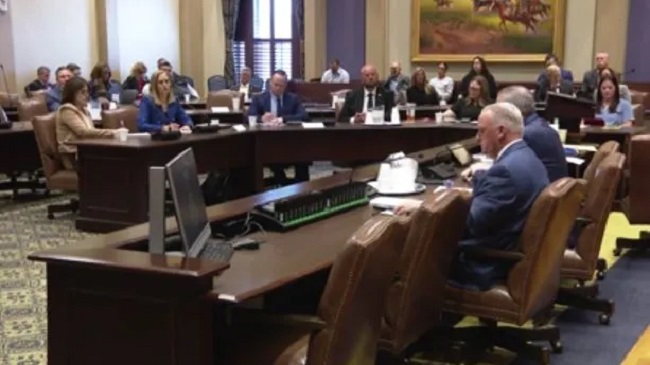OKLAHOMA CITY, OK – Tensions ran high at the Capitol on Monday as Oklahoma lawmakers expressed frustration and concern over the financial instability within the Oklahoma Department of Mental Health and Substance Abuse Services (ODMHSAS). The department’s leadership admitted they may not have enough money to meet payroll obligations through the end of June, prompting a wave of criticism and skepticism from legislators.
Appearing before a Select Committee, ODMHSAS Commissioner Allie Friesen requested an additional $23 million from the state legislature to cover employee salaries. The request came just days after the department first notified lawmakers of its payroll crisis—news that many said caught them off guard.
“Come May 21st, we will need payroll support,” Friesen told the committee.
However, when pressed for specific details on how the $23 million figure was calculated, Friesen was unable to provide concrete answers.
“I can’t give you those answers right now,” she admitted.
The lack of clarity prompted sharp responses from lawmakers. Senator Paul Rosino (R-Oklahoma City) said he left the meeting more confused than reassured.
“I’m at a point where I don’t think we’re getting down to any significant number,” Rosino said. “I don’t think they need more money—I just don’t think they have the sophistication to figure it out.”
Michael Rupke, a project manager for the department, added to the growing concern, telling lawmakers he had “zero confidence” in the agency’s financial team’s ability to confirm available funds.
The committee meeting was called after ODMHSAS sent a notice to legislators late last week stating it would not be able to make payroll—only to reverse its position less than 24 hours later in a statement to local media, saying, “ODMHSAS will be making payroll as scheduled.”
That reversal only deepened lawmakers’ skepticism. “This is how they feed their families,” said House Majority Leader Mark Lawson (R-Sapulpa), referencing the thousands of state workers and mental health providers depending on timely paychecks. “But also [we must think about] our clinicians and the folks that need mental health services.”
Despite the confusion and lack of a clear financial roadmap, legislators did not take immediate action on Friesen’s funding request. However, they promised to ensure employees would be paid—one way or another.
With just three weeks remaining in the legislative session, the pressure is mounting. Lawson told the department to return with a fully documented supplemental budget request before any additional funds would be considered.
The agency has blamed years of financial neglect for the current crisis, but without immediate transparency and accountability, lawmakers appear hesitant to sign off on any new money.
The outcome of the budget request could have lasting implications—not only for ODMHSAS employees, but for the thousands of Oklahomans who rely on its services every day.
Would you like this formatted for print, web, or newsletter use?

